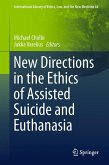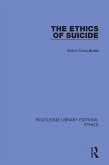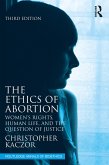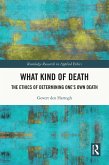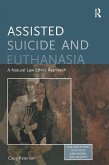In this book, Christian Erk examines the ethical (im)permissibility of killing human beings in general and of selected killings in particular, namely suicide, lethal selfdefence, abortion and euthanasia, as well as organ transplantation and assisted suicide. He does so by addressing a range of important ethical questions: What does it mean to act? Of what elements is an action comprised? What is the difference between a good or evil action and a permissible or impermissible action? How can we determine whether an action is good or evil? Is there a moral duty not to kill? Is this duty held by and against all human beings or only persons? What and who is a person? What is human dignity and who has it? What is it that is actually taken when somebody is killed, i.e. what is life? And closely related to that: What and when is death? By integrating the answers to these questions into an argumentative architecture, the book offers a comprehensive exploration of one of the most fundamental questions of mankind: Under which conditions, if any, is killing human beings ethically permissible?
Dieser Download kann aus rechtlichen Gründen nur mit Rechnungsadresse in A, B, BG, CY, CZ, D, DK, EW, E, FIN, F, GR, HR, H, IRL, I, LT, L, LR, M, NL, PL, P, R, S, SLO, SK ausgeliefert werden.




